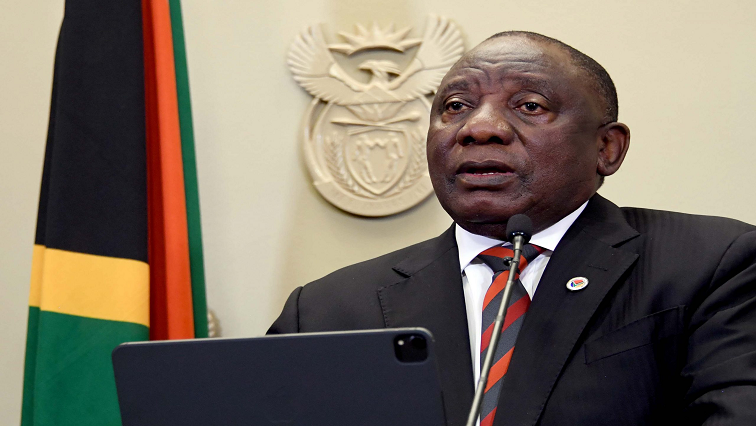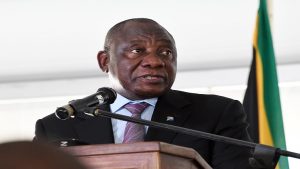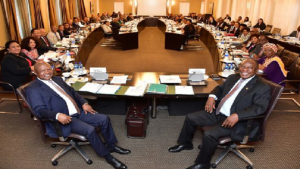The addition of two new ministries to cabinet has been met with some criticism from political parties and civil society organisations.
During his cabinet reshuffle on Monday, President Cyril Ramaphosa announced the establishment of the Ministry of Electricity and the Ministry of Planning, Monitoring and Evaluation.
President Cyril Ramaphosa says Minister Kgosientsho Ramokgopa’s focus would be on increasing the availability of electricity:
The two he said are aimed at focusing greater attention on the performance of government.
“While this will result in an increase in the number of ministries in the short term as mentioned in the State of the Nation Address, I have instructed the Presidency and the National Treasury to develop a proposal to rationalise government departments entities and programmes to ensure greater efficiency. This work will result in the reduction in the number of ministries and it will inform the configuration of government going into the next administration, so we will be reducing the number of ministries going forward,” the President said.
The announcement flies in the face of Ramaphosa’s 2018 commitment to reduce the size of cabinet during his first State of the Nation Address.
Some may take solace in the fact that with the new additions, Ramaphosa’s executive stands at 30 ministers and 36 deputy ministers, compared with that of his predecessor, former President Jacob Zuma’s which had 35 ministers and 37 deputy ministers.
However, DA leader John Steenhuisen is not one of those.
“We now have a larger cabinet with more ministers laid on top of it with another broken promise to reduce the size of cabinet. We have the same promise made in 2019 that we were going to reduce the cabinet size and here we are with even a larger cabinet bear in mind that each cabinet post cost South Africans R37 million a year. We now have an over R70 million added to the bill a year, so we have laid on more ministers which is not going to resolve the problem sadly.”
The two ministries will join the Presidency whose proposed budget for 2023 amounts to R625 million, with an additional R617 million for programmes.
Programme Manager at the Public Service Accountability Monitor at Rhodes University Zukiswa Kota however says there needs to be a broader discussion outside the cost to taxpayers of an increased cabinet.
“By and large many of the dynamics and many of the issues that we had then persist now and if anything, we actually need a much stronger cabinet, a much more decisive cabinet to address these issues and whether a discussion around the size of the cabinet is perhaps taking us away from the quality of rollout, the quality of performance or the performance of these cabinet ministers is an important question.”
Kota says that the human cost to communities is the real cost of adding ministries to shore up a non-performing cabinet.
“If it is that we continue as we have done in the past where there is ministerial underperformance, departmental underperformance, we have no changes in service delivery that are good, we are not seeing enough movement in some indicators for instance we are seeing regression in levels of poverty and inequality and that is fundamentally scary when you think what that means about the cost what the human cost really is. So, is it really worth it, the only way we can answer it is if we actually see changes that up until now have been slow or non-existent.”
South Africa continues to be at the higher end of cabinet size compared to countries such as India, Nigeria and Brazil.
With the rationalisation promised by the President it can only be hoped a more value for money, efficient executive leadership will emerge after 2024.






